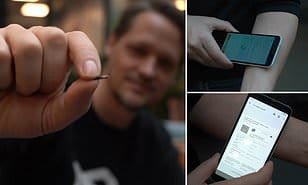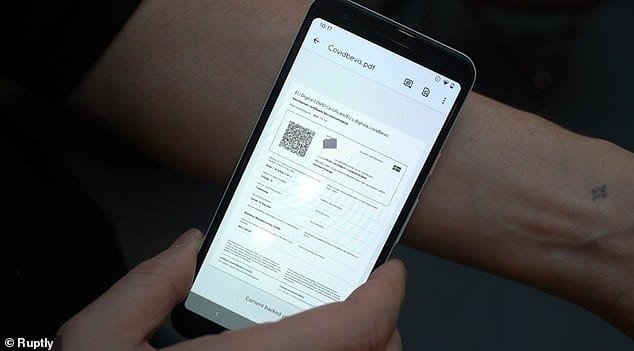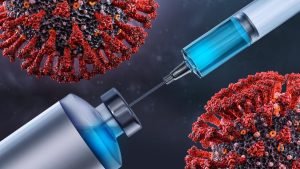
Epicenter, a Stockholm-based startup, has unveiled a new way to carry a COVID vaccine passport – on a microchip implanted under the skin.
The implant can be read by any device using the Near Field Communication Protocol (NFC) – technology used for contactless payments and keyless entry systems.
In a video shared by Epicenter, Hannes Sjöblad, distribution director, has the chip on his arm and simply waves a smartphone over it to check his vaccination status.
- Daniel Negreanu Finally Breaks His Losing Streak to Win Big in Super High Roller Bowl
- Baby Died After Her Mother Left Her On A Trip For Six Days
- OUTSPOKEN: Why Brazil Is The Most Important Country Right Now? By Will Lisil
- How To Build My Artistic Identity In The Metaverse?
- The Spike Protein From Covid Vaccine Can Persist In The Body For Months, Causing Debilitating Symptoms, According To A Study
The video featured DSruptive CEO Hannes Sjöblad, founder of the Swedish Association of Biohackers.
Sjöblad demonstrated how Epicenter’s rice-sized microchip, which has been adapted as a COVID-19 passport, is implanted under the skin of the arm between the thumb and forefinger.

Three Square Market, a Wisconsin-based technology company, became the first company in the United States to offer its employees similar free microchip implants in August 2017. The chip gives employees access to locked rooms and the ability to pay for food and drinks in the room range.
The microchips were supplied to Three Square Market (32M) at the time by Biohax, run by Jowan Österlund, a Swedish tattoo artist and body piercing specialist, according to The Guardian.

“Eventually, this technology will become standardised, allowing you to use it as your passport, public transport, all shopping opportunities, etc,” said Todd Westby, 32M’s CEO at the time.
The technology the company uses is called RFID (Radio-Frequency Identification), which uses electromagnetic fields to identify information stored electronically. The chips also use near field communications (NFC), the same type of technology used in most contactless credit cards and mobile payments.

Westby said at the time that these microchips had already become very popular in many European countries and that companies intended to be ahead of the curve in bringing them to the US. Now they could become COVID passports.
“Implants are a very versatile technology that can be used for many different things and at the moment it is very convenient to have the COVID passport always accessible on your implant,” he said in a statement.

Although blockages have eased around the world, the coronavirus is still spreading and turning into new strains that are harder to stop from spreading.
However, the world now has access to vaccines, which eases the symptoms of the deadly virus, and vaccine status information is provided in paper or digital format known as a COVID passport.








